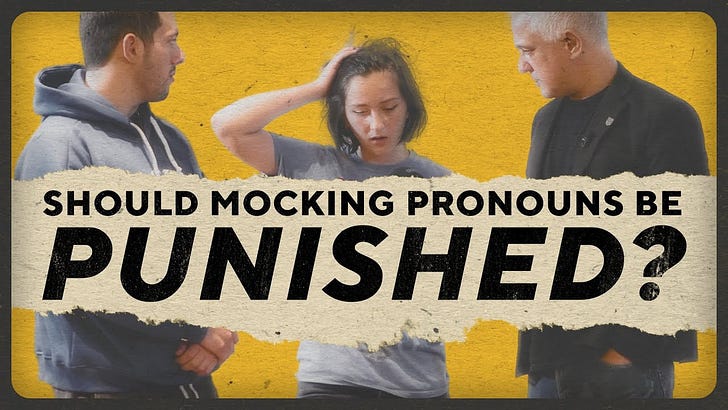In a rapidly changing cultural landscape, pronouns have become a battleground for freedom of speech, respect, and identity. At Williams College, we explored these issues through a Spectrum Street Epistemology exercise, diving into how pronouns impacted our culture.
It’s easy to go along with the crowd, but how does one know what one should go along with? The crowd is not always right, but sometimes it is. The key, then, would be to give students tools to recognize moral fads from genuine moral problems.
Key questions arose: How is freedom of speech impacted by the evolving language around pronouns? Can refusing to use someone's preferred pronouns be considered hate speech? And perhaps most importantly, how do identities shape our underlying beliefs?
Are we ready to return to a time when pronouns were just grammatical tools, not weapons in a cultural divide?



There are some thoughtful comments here. Thank you. Here’s my controversial take on this:
People are incapable of nuance.
I usually use the pronouns people prefer. This does not mean I think that men are actual women—or that they are entitled to access women-only spaces. It seems, however, that this distinction is largely lost.
I have a few friendlies who are trans, and I always use their preferred pronouns. I look at it as general courtesy. That said, is someone wants to NOT use those pronouns then it is what it is. I’m not bothered either way.
This stance gets me considerable grief from what largely is considered the right. So be it.
“One of the painful signs of years of dumbed-down education is how many people are unable to make a coherent argument.
They can vent their emotions, question other people’s motives, make bold assertions, repeat slogans—anything accept reason.”
—Thomas Sowell